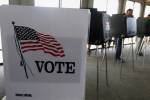Tax petitions facing single-subject obstacle
CARSON CITY -- Petitions to increase Nevada's gaming tax rate to as much as 20.2 percent might be in jeopardy because of a law that requires they deal with a single subject.
"The single-subject rule makes it very easy to challenge a petition," Las Vegas lawyer Joel Hansen said Tuesday. "If the (state) Supreme Court dislikes a petition, it gives them a reason to throw it out."
The Nevada Resort Association on Monday filed a lawsuit in Carson City that challenges a state teachers union petition that would increase the gaming tax rate by 3 percentage points. The tax rate is now 6.75 percent.
Todd Bice, the resort association's lawyer, said the petition violates the single-subject law.
The Nevada State Education Association's petition would increase the gaming tax but also would require that the Legislature continue to fund public education at existing levels and increase spending based on student enrollment growth and inflation.
That stipulation was included so the Legislature could not divert money now used to support schools to other programs once the tax increase went into effect in 2011.
Another petitioner seeking to boost state gaming taxes, Clark County lawyer Kermitt Waters, agrees with Hansen's analysis. Parts of his petition to restrict government's ability to seize private land through eminent domain proceedings were removed in 2006 by the Supreme Court because of the single-subject law.
Waters anticipates the gaming industry will challenge two petitions he plans to file today with the secretary of state. They call for increasing the gaming tax rate to 20.2 percent, the average rate charged by states with casino gaming.
He said money from his petitions, which would raise $2 billion, would be used to construct roads, fund the Millennium Scholarship, pay for court improvements, develop solar and geothermal energy, and reduce residential property taxes.
The petitions are the only route citizens have to improve the state because "gaming runs the Legislature," he said.
The single-subject law, upheld in 2006 by the state Supreme Court, is ludicrous because it conflicts with the U.S. Constitution's First Amendment, Waters said.
Eric Herzik, a political science professor at the University of Nevada, Reno, said Waters and Hansen are right.
"This rule allows the court too much leeway," he said. "What you are going to see (if the court throws out petitions because of the one-subject rule) is multiple one-sentence petitions."
He foresees a time when the Nevada election ballot resembles the one in San Francisco, where voters often decide dozens of questions at a time.
The state Supreme Court also risks people saying it is "bought and paid for" by the gaming industry if it uses the one-subject law to throw out the tax petitions, Herzik said.
Hansen, whose law firm in 2006 handled the only previous cases in which the Supreme Court considered the effects of the law, said it is nearly impossible to write a petition that deals with taxes and not touch on several subjects.
Waters said the state constitution recognizes that petitions must deal with several subjects.
Under the Nevada Constitution, anyone who proposes a change in a state law must identify where money would be found to carry out that change.
The Legislature approved the one-subject law in 2005 in response to two Nevada Trial Lawyer Association petitions that voters rejected in 2004 election.
One trial association petition was touted as a way to reduce auto insurance rates paid by consumers when its purpose was to rescind a law limiting payments to people injured in medical malpractice cases.
Assembly Minority Leader Heidi Gansert, co-author of the 2005 single-subject law, said the measure was designed so people who sign petitions know what they are signing.
"I call it the truth-in-initiative law," said Gansert, R-Reno. "Many petitions are lengthy, and people don't have a chance to read them."
The law she and state Sen. Randolph Townsend, R-Reno, authored requires a 200-word summary explaining the petition and mandates it deal only with one subject. Opponents have 15 days to file challenges to language in the summary.
She said her goal was to prevent opposition groups from filing last-minute challenges to remove already qualified petitions from the ballot.
But Hansen said the law gave well-funded opposing groups an extra shot to challenge controversial petitions.
First opponents challenge 200-word summary, he said. Then, after circulators have secured enough signatures to put a petition on the election ballot, opponents file another lawsuit that challenges language in the petition itself.
The challenges are heard in District Court. If a judge does not agree with their arguments, opponents appeal to the Nevada Supreme Court.
Hansen said the legal strategy makes it impossible for people with limited means to place a petition before voters.
In September 2006, the Supreme Court upheld the constitutionality of the one-subject law in a lawsuit filed by the AFL-CIO against Sen. Bob Beers' Tax and Spending Control in Nevada petition. It would have limited government spending increases to the rate of inflation and population growth.
But the court did not use the one-subject law to throw out Beers' petition, Hansen said. The court tossed the petition Beers circulated on a technicality because it differed by one word from the official petition he filed with the secretary of state.
The court removed several paragraphs of Waters' Peoples' Initiative to Stop Taking Our Land petition on the grounds they violated the one-subject law.
Waters' petition was designed to restrict the ability of government to use eminent domain laws to take private land. Voters approved the PISTOL petition in 2006 and will vote again on the proposal in 2008.
Hansen's firm represented both Beers and Waters.
"Townsend put it in to make it more costly to qualify a petition," Waters said. "It costs $200,000 to $300,000 to qualify a petition, and then they go right to court to find a friendly judge to take it off the ballot."
Contact Capital Bureau Chief Ed Vogel at evogel@reviewjournal.com or (775) 687-3901.























